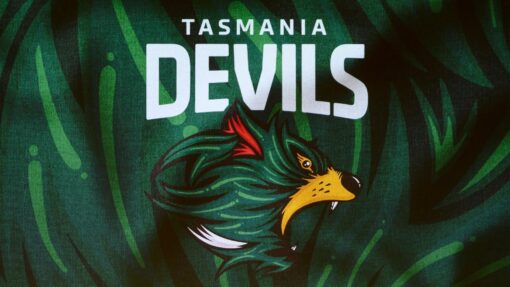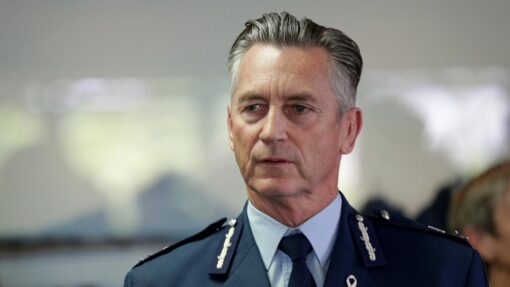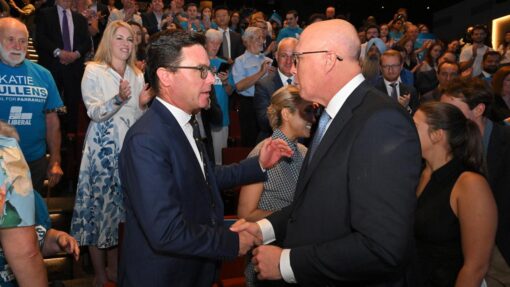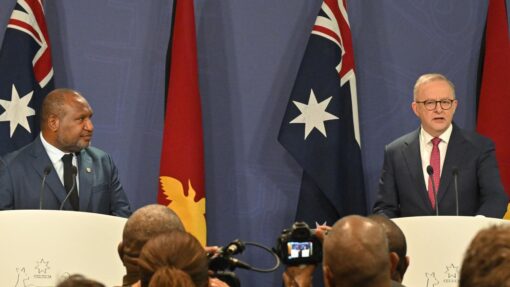Victorian opposition backflips on treaty support
Melissa Meehan and Rachael Ward |
The First People’s Assembly of Victoria says it had no idea the state opposition was withdrawing support for treaty until it was announced on TV.
But the opposition Aboriginal affairs spokesperson says the assembly must not have been listening.
The proposed treaty will pave the way for legally enforced Aboriginal consultation on future Indigenous-related decisions.

Negotiations between elected representatives and the Victorian government are at an early stage, with the coalition previously backing legislation to create a body to oversee the process.
But during a Sky News interview on Sunday night, Nationals leader and opposition spokesman for Aboriginal affairs Peter Walsh said the coalition had withdrawn its support, citing concerns about cultural heritage laws.
On Monday, Mr Walsh said assembly claims they were blindsided showed “they were not listening or paying attention”.
Opposition Leader John Pesutto said the coalition’s decision was based on discomfort on the possible divisive nature of treaty, including suggestions there could be separate justice and child protection systems for First Peoples.
He blamed an “element of secrecy” and said the news shouldn’t have come as a shock following numerous discussions around those topics.
Despite slamming both the government and assembly over a lack of transparency, Mr Pesutto would not be drawn on when the coalition made its decision to withdraw its support for the treaty.
Mr Pesutto said it was important to close the gap between Indigenous and non-Indigenous Victorians, but he believed the way forward was not through a treaty.
“I’m championing a focus on real life outcomes, making sure Indigenous Victorians can get an education, the support they need and the life opportunities they deserve as opposed to one that will focus on a treaty,” Mr Pesutto said.
Despite the coalition throwing its support behind a bill to start the treaty process in 2022, it was not always supportive of the idea – instead stating its preference for a national treaty.
Following last year’s Referendum loss, Mr Pesutto seemed to echo those sentiments, saying it was too soon to declare a party stance on treaty.
Rueben Berg, co-chair of the First Peoples Assembly of Victoria, described the opposition’s withdrawal of support as “disappointing, but not surprising”.
Despite the opposition’s decision, Mr Berg said there was still a path towards treaty.

“It would be more useful to have bipartisan support, so that our issues don’t just become political footballs,” he told reporters on Monday.
“But we are intent on continuing to progress treaty outcomes, regardless of this bipartisan support.”
Victorian Premier Jacinta Allan said Mr Pesutto needs to give an explanation to Victorians.
“Have courage of your own convictions for goodness sake, and talk to the Victorian community about why you have made this decision,” she told reporters.
“Not cloak it in this secrecy, clearly, that we’ve seen for months and months to only find out now in the last week of January.”

She said cultural heritage approvals are a part of a broader process and accused the opposition of using issues with that to crab walk away from treaty.
TREATY IN AUSTRALIA
* Treaty provides a path to negotiate the transfer of power and resources for First Peoples to control matters that impact their lives.
* Negotiations are expected to begin this year across Victoria.
* Following the Voice referendum loss in 2023, Queensland opposition leader David Crisafulli withdrew coalition support for a treaty in the state. Following his announcement, then-premier Annastacia Palaszczuk said treaties would need bipartisan support to move forward.
* NSW Premier Chris Minns was set to begin a year-long consultation period in January, but following the referendum result, he walked back his enthusiasm.
* The NT has a Treaty Unit, Tasmania has committed to progressing truth-telling and treaty and South Australia legislated a state-based voice to parliament early this year.
* The ACT has already established an elected Indigenous voice to parliament that advises government.
* Western Australia has no treaty or truth-telling plans but its constitution was altered in 2015 to recognise Indigenous people.
13YARN 13 92 76
Aboriginal Counselling Services 0410 539 905
AAP


